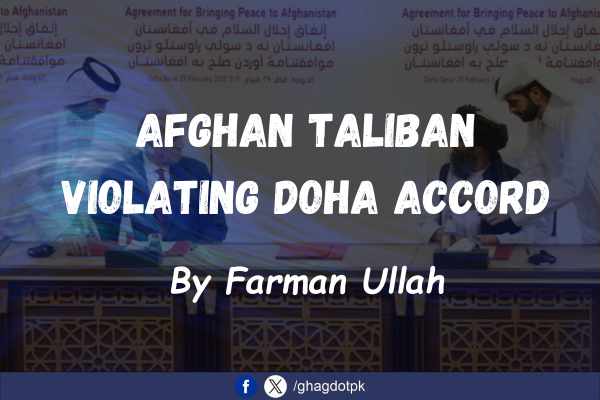By Farman Ullah
The Taliban’s takeover in August 2021 was a crushing blow to Afghanistan’s peace efforts. Despite signing the Doha Accord in 2020, promising to end decades of conflict, the Taliban’s actions have fallen woefully short. The agreement aimed to establish a peace framework between the US, the Taliban, and the Afghan government, outlining key provisions like foreign force withdrawal, renouncing terrorism, and prisoner releases.
Instead, the Taliban has systematically undermined the accord. Women’s rights have been severely curtailed, with girls’ education banned beyond sixth grade and limited job opportunities. Dissent is silenced through protest crackdowns, critic arrests, and media restrictions. Extrajudicial killings continue, and ties to terrorist groups like Al-Qaeda remain strong. Ceasefire violations persist, putting civilians in harm’s way.
These violations have dire consequences: international isolation, economic sanctions, humanitarian crises, and regional instability. The global community has condemned the Taliban’s actions, refusing to recognize their government.
To address this crisis, the Taliban must be held accountable. The international community should engage diplomatically, offer economic incentives, provide humanitarian aid, and support Afghan civil society.
Collective action by the international community can compel the Taliban to adhere to the Doha Accord and promote human rights.
The Taliban’s failure to uphold the Doha Accord has devastating consequences for Afghanistan. It’s time for the international community to act. Sources documenting these violations include reports from the US Department of State, Human Rights Watch, and Amnesty International.






